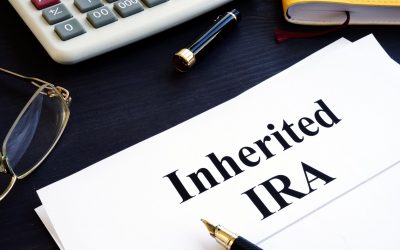
When we think about important birthdays, we think of 18 and 21, but what about 59 ½ or 72? Just because you’re older doesn’t mean you don’t have more milestones to hit. Starting at age 50, several birthdays and “half-birthdays” are critical to understand because they have implications for your retirement. Are you close to an important birthday?
Age 50
At age 50, workers can make annual “catch-up” contributions in addition to their normal contributions. In 2021, you can contribute up to $6,000 to an IRA if you are under 50 and an additional $1,000 if you are 50 or older. Those 50 and older can also contribute an additional $6,500 to a 401(k), 403(b), most 457 plans, and a government Thrift Savings Plan in 2021 for a total of $26,000.[1]
Age 59 ½
With age comes benefits! Once you reach 59 ½, you can withdraw from your IRA without penalty.[2] If you are retired or have terminated employment and still have funds in your 401(k) plan, you can access them at age 59 ½ and pay no early withdrawal penalty tax. This means that you potentially have access to more investment options. You also may be able to withdraw from your 401(k) earlier: If you leave your job for any reason in or after the year you turn age 55, you can withdraw from the retirement plan at the job you left penalty-free.[3]
Age 65
At 65 you may have important decisions to make about Medicare coverage. You can enroll in Part A (hospital insurance) when you turn 65, even if you still have health insurance through an employer. You can decline Part B (medical insurance) coverage because it requires an additional premium payment, but if you aren’t covered by an employer’s health plan and decide to enroll later, you may have to pay a penalty for as long as you’re enrolled.[4] It’s also important to think about supplemental coverage, including prescription drug coverage. A solid retirement plan includes a plan for covering healthcare expenses, and Medicare doesn’t cover everything.
Age 72
Required Minimum Distributions (RMDs) start at age 72 and apply to qualified retirement plans such as 401(k)s, 403(b)s, and IRAs.[5] RMDs are the minimum you are required to withdraw each year, but you can always withdraw more than that amount. Withdrawing more from a traditional retirement account could mean a higher tax burden and an end to tax-free growth for the withdrawn funds. If you forget to take an RMD, it’s going to cost you. There is a 50% penalty based on the RMD you were supposed to take, on top of the tax you’ll owe. You can talk to a financial advisor to create a plan to avoid missing RMDs and to develop a long-term tax minimization plan.
Understanding important birthdays over 50 may help you better prepare for certain retirement income and benefits. But perhaps more importantly, knowing key birthdays can help you avoid penalties that may be imposed if you miss the date. We invite you to talk to us about your unique options and strategies. And if you’re nearing any birthday, we wish you a happy one!
[1] https://www.irs.gov/retirement-plans/plan-participant-employee/retirement-topics-401k-and-profit-sharing-plan-contribution-limits
[2] https://www.irs.gov/retirement-plans/retirement-plans-faqs-regarding-iras-distributions-withdrawals
[3] https://www.irs.gov/taxtopics/tc558
[4] https://www.ssa.gov/benefits/medicare/
[5] https://waysandmeans.house.gov/sites/democrats.waysandmeans.house.gov/files/documents/SECURE%20 Act%20section%20by%20section.pdf



